Education Overview
I graduated in May 2014 with my Bachelor of Science degree from Montana State University's
Electrical Engineering
department, one of the highest rated electrical engineering research departments in the
west.
montana.edu/ee
Electrical Engineering
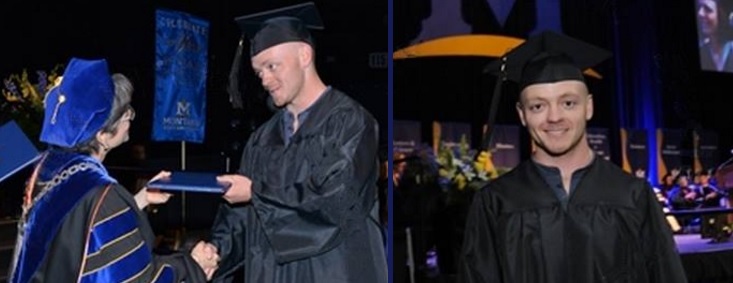
I chose to become an electrical engineer because I knew that
the education would empower me to make a living by helping people and doing what I
love to do.
I have learned more and met more challenges than I had ever
anticipated. This path has made me a hands on problem solver with an in-depth
knowledge of electrical and computer systems.
The best part is that I'm always learning, adapting and creating.
Below is a list of courses in electrical engineering that I've completed.
Mobile
Wireless Communications, EELE-447
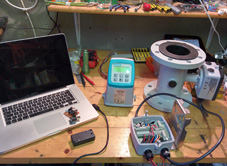 Characteristics of the radio environment, propagation, cellular concepts, channel allocation, modulation techniques, multiple access techniques, Shannon's Capacity Theorem, error-correcting codes, data compression, spread spectrum modulation, current wireless communication systems. |
|
|
Digital System Design, EELE-461 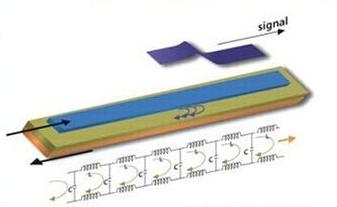 Researching the physical phenomena that lead to signal degradation when
generating and transmitting digital signals. The broadband response of
transmission lines will be presented in addition to lumped versus
distributed analysis. Emphasis is placed on the physical structures that are
used to construct modern digital systems (on-chip Rx/Tx circuitry, on-chip
interconnect, IC packaging, PCB's, connectors, and cables). The fabrication
process for each component of the digital system will be presented in
addition to the tradeoffs between mechanical reliability, cost, and
electrical performance. Modern analysis tools will be used to explore these
topics including SPICE circuit simulators, EM field solvers, and PCB
design/layout software. Modern test equipment will also be presented
including Time Domain Reflectrometry (TDR), Vector Network Analysis (VNA),
and Jitter Characterization using Real-Time Digital Oscilloscopes. |
|
HW
and SW Eng; Embedded Systems, EELE-475
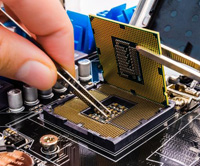 Topics in embedded system design, real-time operating systems, high level language programming of embedded systems, software and hardware tradeoffs, and laboratory experience with embedded systems. |
|
|
Microcontroller Applications, EELE-465 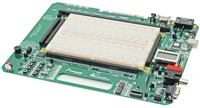 Exposure to micro controller hardware and software applications, serial and
parallel I/O, timing, interrupts LCDs, keypads, A to D conversion, and a
project realizing a real time control problem. |
|
Power
Electronics, EELE-451
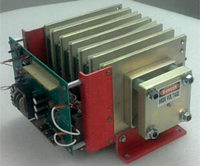 Introduction to solid-state power devices; topologies, operating principles,modeling and control, and design of basic power converters; magnetic design; applications of power converters in renewable energy source power systems, electric and hybrid electric vehicles, and other residential, commercial, and industrial systems; laboratory experience with basic power converters. |
|
|
Capstone Design, EELE-488R,489R 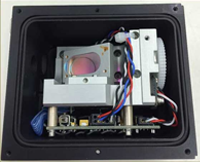 Two consecutive-semester senior capstone design sequence in Electrical
Engineering. Students, under the guidance of a faculty supervisor, realize,
assess and document the performance of their solution to a real-world design
problem.
|
|
VLSI,
EELE-414
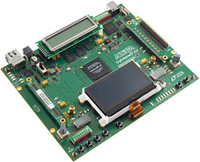 Introduction to the fundamentals of CMOS VLSI circuit design. This course covers CMOS device characteristics and timing, CMOS fabrication, CAD tools, design rules, simulation and layout, CMOS combinational and sequential logic, SRAM and DRAM memory, and dynamic logic design. |
|
|
Telecommunication Systems, EELE-445  Introduction to analog and digital communication systems with lab. Topics include signals in communications; noise characterizations; bandwidth considerations; probability of error; analog and digital modulation; frequency domain analysis; matched filter applications. Experiments involve modulation, demodulation, A/Ds, sampling theory, and aliasing. |
|
Materials
Science, EELE-409
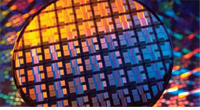 Basic material properties of dielectrics, magnetic materials, conductors, and semiconductors. Practical applications of materials to semiconductor devices |
|
|
Microfabrication, EELE-407 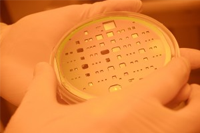 Provide an introduction to clean room safety protocol and micro fabrication. Lectures will introduce micro fabrication methods, models and equipment. Laboratories will perform the steps to produce and characterize a metal-oxide-semiconductor transistor. |
|
Engineering
Ethics, EELE-487
 Engineers from industry and others give presentations on professionalism, ethics, and engineering practices. Included are specific well-known, historical engineering ethics cases and professional practices of engineering, intellectual property issues, and new developments. |
|
|
Microprocessor Hardware and Software, EELE-371 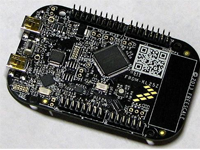 Introduction to the structure of microprocessors, arithmetic and logic units, processor control, interrupts, memories, and input/output. Laboratory experience in assembly level programming of microprocessor applications. |
|
Energy
Conversion Devices, EELE-355
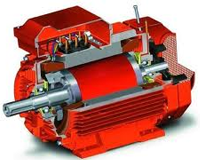 Three-phase power; electromechanical energy conversion devices and motor drives; introduction of power electronic converters for power control and motor drive applications. Laboratory experience includes power measurements; experience with transformers and motor-generator operational characteristics and DC and AC motor drives operation. |
|
|
Electromagnetic Theory, EELE-334 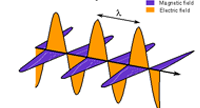 Basic electric and magnetic fields including transmission lines. The materials covered will include both static and dynamic fields, traveling waves, and transmission line concepts such as impedance, reflection coefficient, and transient response. |
|
Feedback
Controls, EELE-321
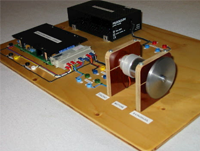 Classical continuous-time, transfer function approach to control systems engineering. Approximations, linearization, and time response. Design and analysis via root-locus, Nyquist, and Bode methods. Proportional, dominant pole, lead, lag, PID, and minor loop compensation. Describing functions. Lab exercises incorporate a variety of hand-on control systems. |
|
|
Electronics, EELE-317  This is an introductory course in electronics. It introduces diodes, bipolar junction transistors, field effect transistors and bipolar and MOS analog and digital circuits. |
|
Signal
and Systems Analysis, EELE-308
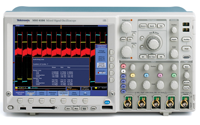 Discrete and continuous time signals and systems. Properties, application, synthesis and analysis for the CT and DT Fourier Series, the Fourier transform, the DTFT, z and Laplace transform. Applications in differential and difference equations, sampling, feedback, and communications. Introduction to the DFT. |
|
|
Logic Circuits, EELE-261  An introductory course in the fundamental concepts of classical digital design. Course covers design and implementation of combinational logic circuits, synchronous sequential circuits and information storage circuits. Basic concepts of programmable logic devices and computer-aided design tools are presented. |
|
|
|
Circuits
Engineering II, EELE-203
Natural and forced response of R-L-C circuits, frequency response of R-L-C circuits and Bode plots, frequency response, slew-rate and DC imperfections of real op-amps; Laplace Transform, Fourier series and Fourier Transform techniques in circuit analysis; basic R-L-C and op-amp filters; two port networks. |



